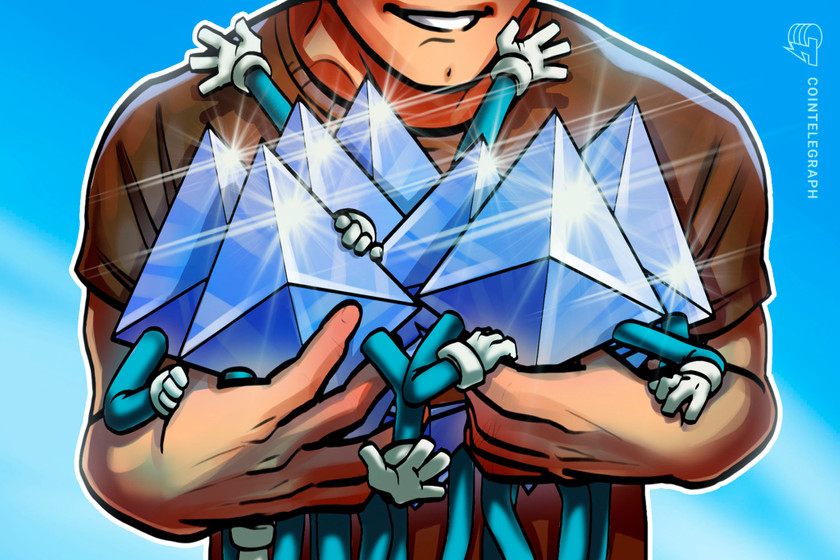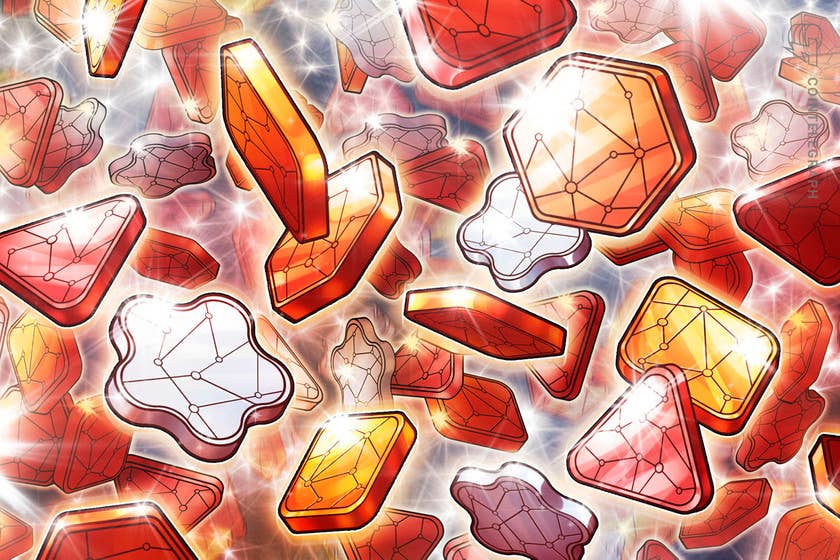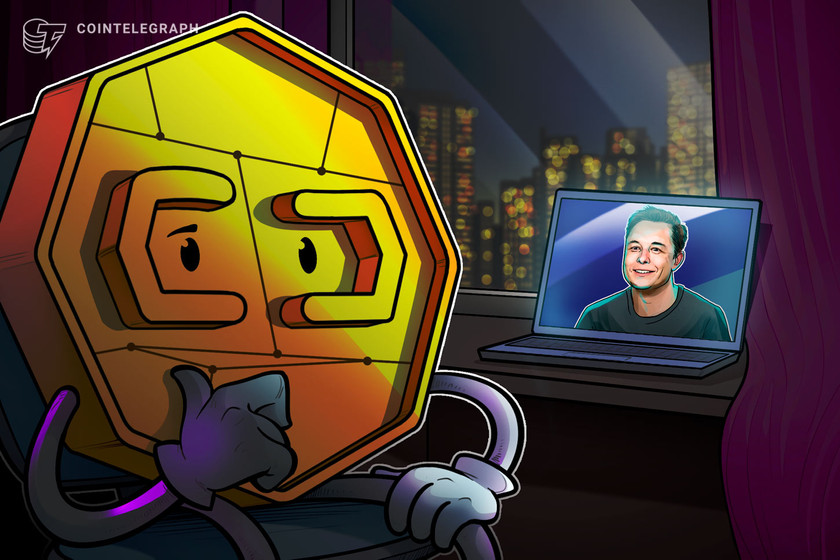Legal DAOs: Why are the Marshall Islands betting on a decentralized future?
The Republic of the Marshall Islands made history in the second week of February after it formally recognized decentralized autonomous organizations (DAOs) as legal entities.
The Marshall Islands revised its Non-Profit Entities Act 2021, making it possible for any DAO to register and commence operations in the country. The amendments to the law mean DAOs can now incorporate as nonprofit LLCs with bylaws and membership that can be recorded on the blockchain.
The Pacific state nation on-boarded MIDAO Directory Services Inc., a domestic organization to help other DAOs register in the Republic. This led to the registration of the first legal DAO in the form of Admiralty LLC for Shipyard Software, a decentralized finance- (DeFi-) focused infrastructure developer.
MIDAO co-founder Adam Miller explained the reasons behind their decision to work with the Marshall Islands government and help other entities register their legal DAO in the country:
“I spent months researching what technology could make it easier to launch and operate DAOs. Any solution would cost $10s of millions and over a year to build. Then, the Marshall Islands law emerged, and I realized I could help solve an even bigger problem for DAOs, costing only single-digit ETH and taking days to implement per DAO. That’s when I knew starting MIDAO would be the best way for me to have a positive impact on the DAO community.”
Admiral DAO will be the organizational entity in charge of regulating Clipper — a decentralized exchange (DEX) developed by Shipyard — on behalf of the community and future DEXs built by Shipyard.
What made the Marshall Islands a good destination?
Many existing laws and institutions creating legal entities have not yet taken the unique legal implications of DAOs into account.
As a result, implementing a DAO is not an easy task, even in regions with favorable regulations for nascent technology such as blockchain.
Many jurisdictions require bylaws to be recorded in a specific manner with the government, while blockchain code may be irreversible. In addition, many legal corporations are required to keep track of membership using a ledger of names, whereas DAOs often use tokens. This means that most well-known options only provide partial options for token-holder-based governance.
Take Wyoming in the United States, for example. The U.S. state legally recognized DAOs in July 2021, but this came with caveats. First, the regulations require a minimum of 50% approval in community voting, which some see as an impractical target to achieve. Second, it’s not a sovereign nation thus it must adhere to changes in federal law.

This is what led Shipyard Software to turn to the Marshall Islands, a jurisdiction that enjoys several advantages over others in terms of sovereignty and stability as a Freely Associated State of the United States. The nation boasts the reliability of U.S.-aligned banking and financial systems and a fast-moving adaptable legislative process that can keep up with evolving markets.
David Paul, Minister-in-Assistance to the President and Environment Minister of the Republic of the Marshall Islands, played a key role in formulating and pushing the DAO legislation. Speaking to Cointelegraph, Paul explained why the country has bet its money on becoming a hub for DAOs:
“The Republic of the Marshall Islands sees DAOs as the first major step toward becoming an internationally recognized and premier hub for the blockchain industry. In whatever shape or form, the digital economy is the way of the future and we want to position ourselves as the jurisdiction of choice. We specifically recognize DAOs at this moment as an early-stage innovation in the blockchain sector, and the Marshall Islands wants to be a leader in the DAO sector.”
“Laws and regulations will be created and ratified, based on what the market will require as this space evolves. To remain competitive, Marshall Islands must continue to adapt to changes swiftly and also responsibly at the same time,” he stated.
The sovereign nation has utilized blockchain technology in the past to simplify cross-border payments and has also begun developing a sovereign digital currency. The nation first revealed its plans of launching a sovereign national currency in 2018 and developments began in 2020.
The sovereign currency called the Marshallese Sovereign (SOV) is based on the Algorand blockchain and development works have been ongoing. The sovereign nation received a warning from the International Monetary Fund for its digital currency development program back in June 2021.
Mark Lurie, founder and CEO of Shipyard Software, told Cointelegraph that they have weighed in various factors including regulations, cost, sovereignty and clear DAO treatment before zeroing on the Pacific island state.
Lurie took note of the vulnerabilities involved with DAO networks as well, stating that security and decentralization were key parts of the legislation for incorporating DAOs.
Talking about awareness around the blockchain industry and DAOs in particular, Lurie said:
“I hope the mainstream media recognizes that not all things related to blockchain are financial. DAOs are a very different thing than cryptocurrency, just as a company is a very different thing from the U.S. dollar.”
Are DAOs the future?
DAOs are decentralized governance systems run by smart contracts and some form of human intervention like community decision-making. Since the first-ever DAO was released in 2016, the concept has gained significant traction, particularly in 2021 amid the growing popularity of decentralized finance.
In the Information Age, traditional corporate employment is rapidly becoming obsolete as a means of coordinating activities, as evidenced by the growth of other kinds of earning such as influencers, contractors, producers, gig economy participants and more. These are all examples of people acting as individual value providers in complicated networks and receiving cash for their efforts, even if they don’t feel like “work.”
The previous paradigm of a corporation with rigid internal and external borders made sense 50 years ago, but now, this approach leads to unbalanced incentives and unsustainable extraction. This is where decentralized systems like DAOs will act as the coordination layer for this new world.
the future of daos feel more like co-ops and artist collectives and less like a corporate sponsored “open source” event.
— fiii.eth (@fionais__online) July 23, 2021
DAOs are no longer just an optimistic notion, even though they are still in their early stages of development. They are genuine businesses that manage billions of dollars in assets, provide real products and services to millions of people and invent new methods for people to make money.
Assange DAO is one of the most recent examples that highlight the growing popularity and power of DAO systems. As the name suggests, the DAO was created for anyone looking to help Julian Assange using Ether (ETH). Donors then received a proportional amount of its governance token JUSTICE, allowing them to vote on how the raised funds will be spent and on future initiatives aimed at supporting the cause of the whistleblower. The DAO raised a whopping $53 million.
Major governments around the globe have been experimenting with blockchain technology in various sectors, but the decentralization aspect of the tech often takes a back seat. Thus, the Marshall Islands’ decision to offer LLC status to DAOs shows the legislator’s understanding of the technology and how it could shape the future of traditional corporate for good.









